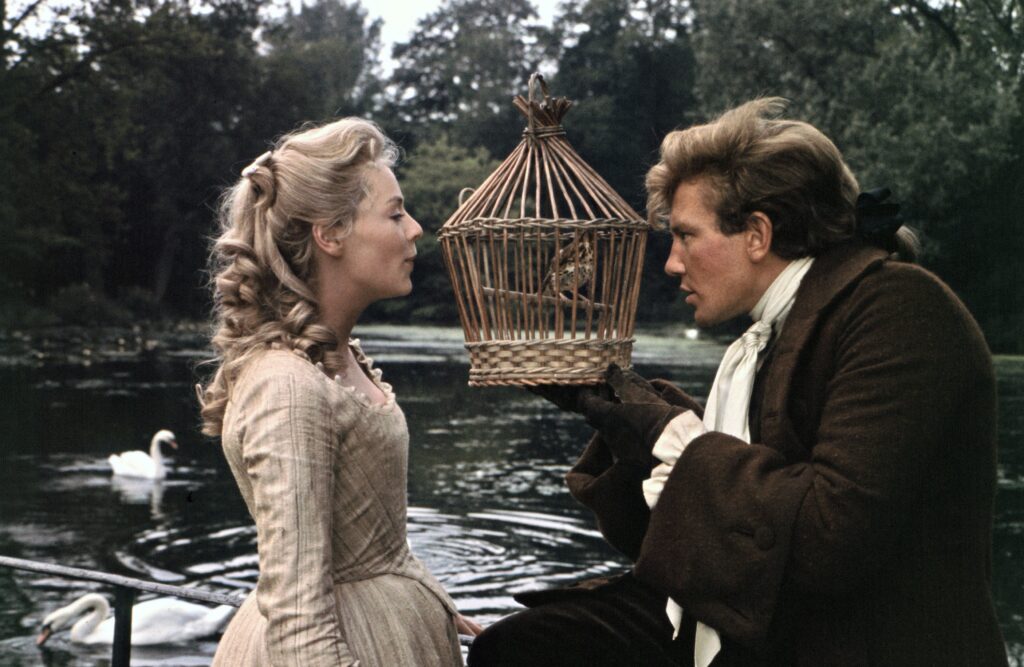Monday
For my weekly reporting on Angus Fletcher’s Masterworks: The 25 Most Powerful Inventions in the History of Literature, I turn to a chapter featuring two of my favorite authors. I specialized in 18th British Literature in graduate school because I figured that any culture that had produced Henry Fielding’s Tom Jones was worth studying. The fact that the century also produced Jane Austen cinched the deal.
Until I read Masterworks, however, I hadn’t really associated the two. Or at least, I hadn’t done so knowingly. In my favorite course, however, Tom Jones and Sense and Sensibility were key texts, and Fletcher has helped me see how they are related. First, some background.
In my course “Couples Comedy in the Restoration and 18th Century,” I looked at how the genre appears to be an oxymoron. After all, love opens the heart whereas comedy creates distance. The latter is especially true of Thomas Hobbes’s theory of comedy, expressed in Leviathan, which claims that we laugh at others to assert our superiority. Even the Earl of Shaftesbury’s gentler theory—that we laugh with rather than at–involves a different emotional engagement than love.
And yet, as we know, romantic comedy is one of our most popular genres. Shakespeare pioneered it with plays like Much Ado about Nothing, Twelfth Night, and As You Like it, and in my course I taught such 18th century plays as Oliver Goldsmith’s She Stoops to Conquer, Richard Sheridan’s School for Scandal, and Hannah Cowley’s The Belle’s Stratagem. Hollywood, meanwhile, has produced hundreds of rom-coms.
I placed Tom Jones (1749) at the center of my course, mixing as it does passionate romance (between Tom and Sophia) and comic distancing. Fletcher argues that the novel functions as “valentine armor.” At the same time that we are laughing at Fielding’s comedy, we are rooting for the love of Tom and Sophia. As Fletcher sees it, Fielding alternates between “Almighty Heart” and “lightly satiric narration.”
Fielding’s mixture, as Fletcher sees it, was in response to the way a new genre, the romance novel, was making us vulnerable as only love can. The key work here was Samuel Richardson’s Pamela (1740), which is about a serving maid who resists the advances of Lord B___, her employer. Ultimately Pamela so impresses him with her virtue that he marries her.
The danger of this new narrative, Fletcher says, is that is threatened women with broken hearts. Women
dashed again and again into love—only to discover to their miserable shock that the world was not, in fact, filled with would-be spouses. It was populated instead with carnal con artists, polite uninterest and mismatched affections. Over and over, [these women] rushed into kissing too fast. And over and over, they got dumped at the altar, their dreams ending in tears.
In an earlier work, Fielding had mocked Pamela in his novel Shamela, in which Shamela is a scheming seductress who takes Lord Booby (as Fielding renames Lord B___) for a ride. Her vaunted “virtue,” which Richardson celebrates, is in Fielding’s eyes no more than a bargaining chip that she uses skillfully to entrap Booby into marrying her.
Fletcher says that, in mocking the sentimental Pamela, Fielding was walking in the footsteps of his favorite novelist, Cervantes, whose great work mocked the way that chivalric romances pulled in a Spanish nobleman. As Fletcher puts it, “Irony had saved the chivalry-addled readers of Don Quixote, and it could now do the same for Pamela’s love-besotted readers.”
But Shamela was nowhere near as successful as Pamela, which is what prompted Fielding to add genuine romance to Tom Jones. The result, Fletcher says,
was a mix of epic-length intimate disclosure and mock-epic irony, a back-and-forth between Pamela and Don Quixote, that elevated our heart while also restraining it.
The 1980’s was a good time to teach Tom Jones because irony was all the rage. In fact, the Italian theorist and novelist Umberto Eco argued that irony was the language of postmodernism. We can no longer make straightforward declarations of love such as are found in the torrid Regency novels of Barbara Cartland, he contended, because language has been devalued. We can, however, express love through irony. The postmodernist attitude, he wrote, is
that of a man who loves a very cultivated woman and knows he cannot say to her “I love you madly,” because he knows that she knows (and that she knows that he knows) that these words have already been written by Barbara Cartland. Still there is a solution. He can say, “As Barbara Cartland would put it, I love you madly.”
To further convey this idea, I would often refer to one of my students’ favorite films, which for a while was The Princess Bride (1987). That film does a version of what Fletcher says Tom Jones does, which is alternate between celebrating true love and mocking the true love cliché. Sometimes we are immersed in the world of the romance, sometimes (through the story’s frame narrative) we are watching that world from an ironic distance. Audiences get to have their cake and eat it too.
If we are drawn to romantic comedies, maybe it’s because we too want the love without the vulnerability and get that through Fletcher’s “valentine armor.” I’ll discuss tomorrow how Fletcher thinks that Jane Austen went Fielding one better when, rather than alternating back and forth between sentiment and comic irony, she found a way to convey them simultaneously.


